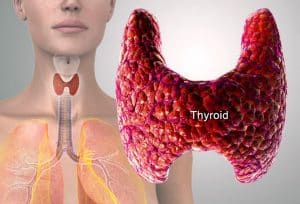The Thyroid Decoded: Insights into Function, Disorders, and Holistic Care Strategies
Understanding the Thyroid Gland
The thyroid gland Decoded is a crucial organ located in the neck, responsible for producing hormones that regulate metabolism, growth, and development throughout the body. It plays a pivotal role in maintaining overall health and well-being by influencing various bodily functions, including heart rate, digestion, muscle control, and mood regulation.

Functions of the Thyroid Hormones
Thyroid hormones, primarily thyroxine (T4) and triiodothyronine (T3), are synthesized by the thyroid gland and are essential for the body’s metabolism. These hormones control how the body uses energy, regulates temperature, and affects other vital systems. They are intricately involved in ensuring the proper functioning of organs and tissues.
Common Thyroid Disorders
Hypothyroidism
Hypothyroidism occurs when the thyroid gland does not produce enough hormones to meet the body’s needs. Symptoms may include fatigue, weight gain, cold sensitivity, and cognitive difficulties. It is often caused by autoimmune conditions like Hashimoto’s thyroiditis, where the immune system attacks the thyroid tissue.
Hyperthyroidism
Hyperthyroidism is the opposite of hypothyroidism, characterized by an overproduction of thyroid hormones. Symptoms can include weight loss, rapid heartbeat, anxiety, and heat intolerance. The most common cause is Graves’ disease, another autoimmune disorder affecting the thyroid.
Thyroid Nodules and Goiter
Thyroid nodules are lumps that form within the thyroid gland. While most nodules are benign, some can be cancerous. Goiter refers to an enlarged thyroid gland, often due to iodine deficiency or autoimmune conditions.
Holistic Care Approaches for Thyroid Health
Diet and Nutrition
A balanced diet rich in iodine, selenium, and zinc is essential for thyroid function. Iodine is crucial for hormone production, while selenium helps regulate thyroid hormone synthesis. Zinc supports immune function, crucial for managing autoimmune thyroid conditions.
Stress Management and Exercise
Chronic stress can impact thyroid function. Incorporating stress-reducing techniques such as yoga, meditation, or deep breathing exercises can help manage stress levels and support overall thyroid health. Regular exercise also promotes metabolism and helps maintain a healthy weight.
Herbal Supplements and Alternative Therapies
Certain herbal supplements like ashwagandha and guggul have shown promise in supporting thyroid function and balancing hormone levels. However, it’s essential to consult with a healthcare provider before incorporating these into your regimen, as they can interact with medications or exacerbate certain conditions.
Medical Treatments for Thyroid Disorders
Medication
For hypothyroidism, levothyroxine is commonly prescribed to replace deficient thyroid hormones. It helps restore hormone levels to normal and alleviate symptoms effectively. For hyperthyroidism, medications like methimazole or propylthiouracil may be used to reduce hormone production.
Radioactive Iodine Therapy
In cases of hyperthyroidism, radioactive iodine therapy may be recommended to reduce the size and activity of the thyroid gland. It involves taking radioactive iodine orally, which selectively destroys thyroid tissue without affecting other tissues in the body.
Surgery
Surgical removal of part or all of the thyroid gland (thyroidectomy) may be necessary in cases of thyroid cancer, large goiters causing difficulty swallowing or breathing, or when other treatments are ineffective or not suitable.
Conclusion
Understanding the complexities of thyroid function and disorders is crucial for maintaining overall health and well-being. From the intricate balance of thyroid hormones to the various treatment options available, managing thyroid health requires a comprehensive approach that considers both conventional and holistic therapies. By incorporating lifestyle modifications, proper nutrition, and appropriate medical treatments, individuals can effectively manage thyroid disorders and optimize their health.